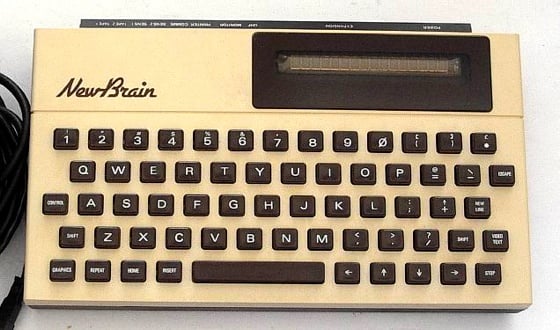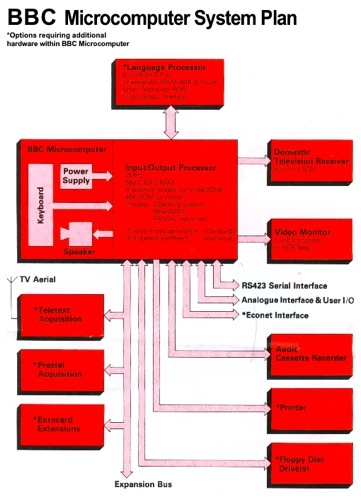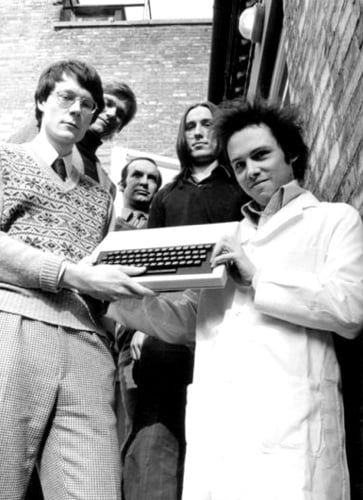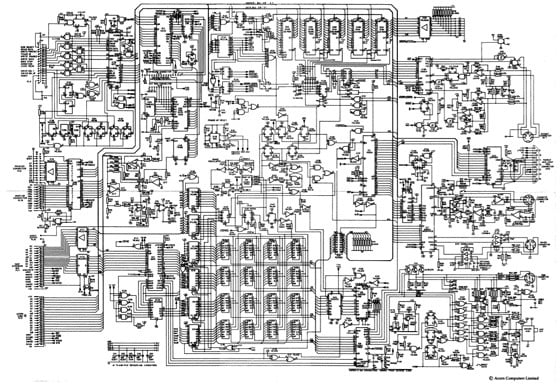This article is more than 1 year old
The BBC Micro turns 30
The 8-bit 1980s dream machine
NewBrain? Never
It has been claimed that the BBC was leaned on by the government to choose one company in particular: Newbury Labs. At the time, the government's National Enterprise Board (NEB) owned Newbury, which was developing a computer that might meet the BBC's needs and could certainly do with the money a BBC-promoted product was sure to generate.

The BBC Micro that might have been: the Newbury Labs/Grundy NewBrain
Newbury had acquired the NewBrain project, begun in 1978, from Sinclair Radionics, of which the NEB had gained ownership after rescuing the pocket TVs and calculators company with a major cash injection. Radionics eventually collapsed anyway, allowing Clive Sinclair to join Science of Cambridge, which Chris Curry had earlier established on his behalf, and for which Curry created the MK14. The NewBrain, however, was retained by the NEB and handed to Newbury to develop further.
The machine's long gestation was not accelerated under the stewardship of Newbury. Legend has it that, having selected the NewBrain, the BBC soon learned that development problems would ensure the machine wouldn't be ready in time for the planned October 1981 broadcast of Hands on Micros. That, it's said, forced the BBC to reschedule the series, which would eventually transmit as The Computer Programme in January 1982.

BBC documentation from 1983 confirms that difficulties implementing the hardware did indeed prompt The Computer Programme's broadcast schedule to be put back. But these difficulties were not those being experienced within Newbury Labs. The documentation says that Acorn, having demonstrated a working prototype of its putative BBC machine – the Proton, essentially – was awarded the BBC Micro contract as early as February 1981.
A separate BBC document from June 1981 details a full BBC Micro specification right down to launch pricing that matches exactly what the BBC Model A and Model B machines would actually deliver when they were finally unveiled to the public in December 1981.
Was, then, the NewBrain ever a serious contender for the BBC Micro? It certainly seems the case that Newbury was one of the seven companies approached by the BBC during its 1980 consultations, quite possibly at the behest of the NEB. If the NewBrain was the Corporation's first choice, subsequently dropped, Acorn being signed as a hasty substitution – as Acorn's Chris Curry was alleging as early mid-1981 – it must have been signed up in 1980, and not so very long after the BBC began approaching manufacturers.
As it stands, the NewBrain did not go on sale until July 1982 – by then the NEB has sold Newbury Labs to Grundy – so it's clear that any claim that Newbury might have made that it could launch a BBC Micro in September or October 1981 would have been optimistic in the extreme.
Even choosing Acorn in February 1981 didn't prevent set-backs: due seven or eight months later, the BBC Micro / Proton, didn't launch for a further two months. The Basic code wasn't finalised until September, leading The Computer Programme's production team to fear they wouldn't have kit they'd be able to use when they went into the studio to record the episodes in November.

Acorn's BBC Atom team: (L-R) David Johnson-Davies, Hermann Hauser, Chris Curry, Roger (later Sophie) Wilson, Nick Toop. Absent from photo but a key team member is Steve Furber, but that didn't stop the BBC from giving Furber Johnson-Davies' pullover-and-specs look in the drama Micro Men
How different the Proton would have been had Sinclair or another company won the BBC's backing, is open to question. The 6502 CPU, the "Tube" secondary-processor bus, Econet networking support and much of what became known as BBC Basic at least would have been part of the package. The casing would not have been much different.

